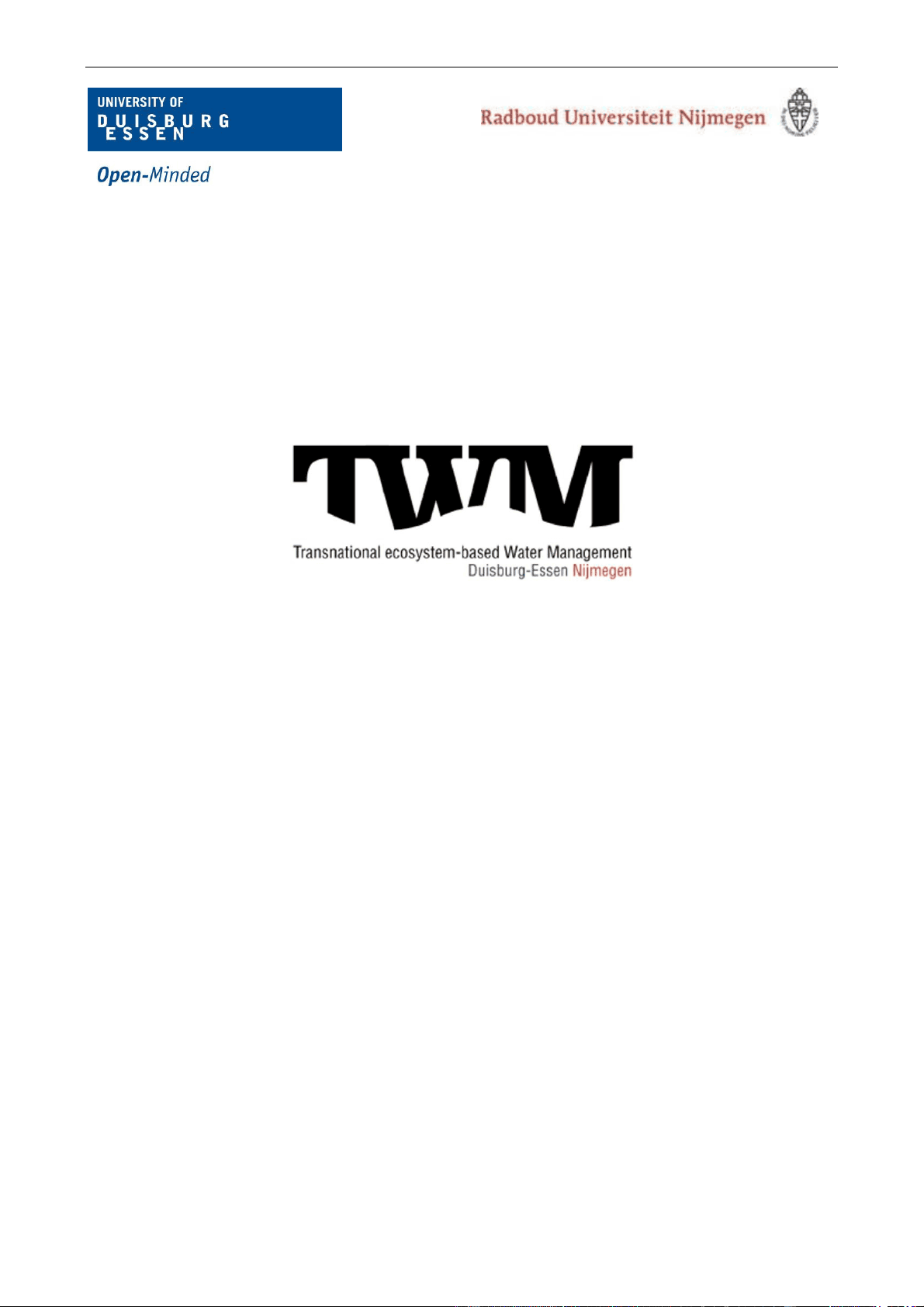
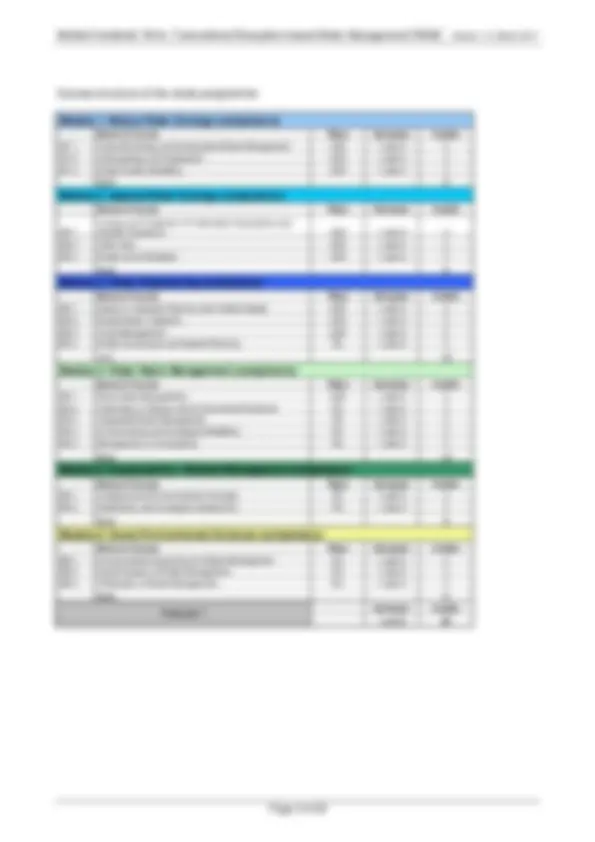
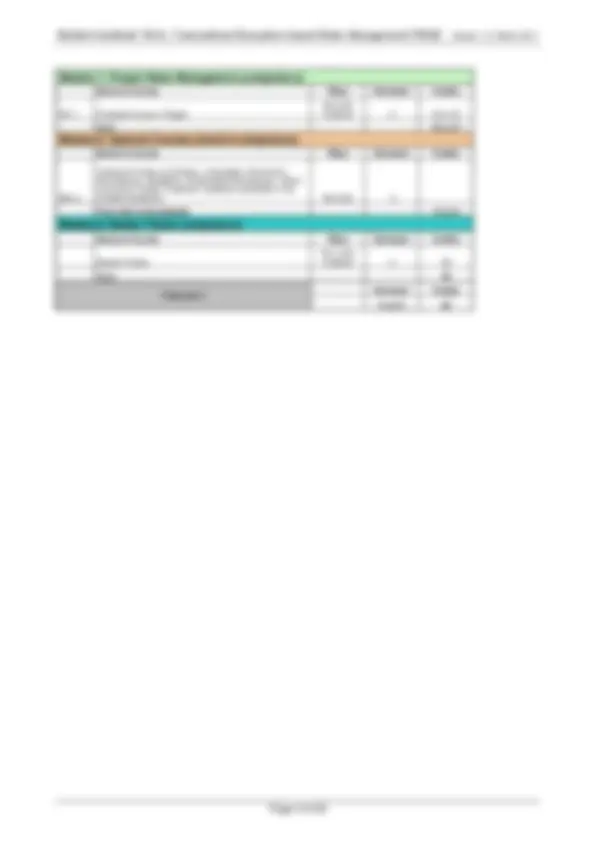

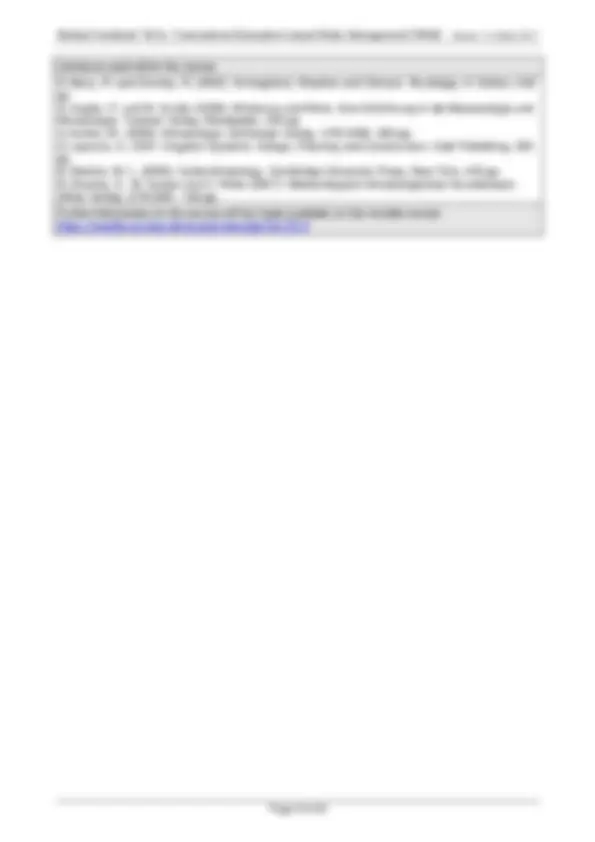
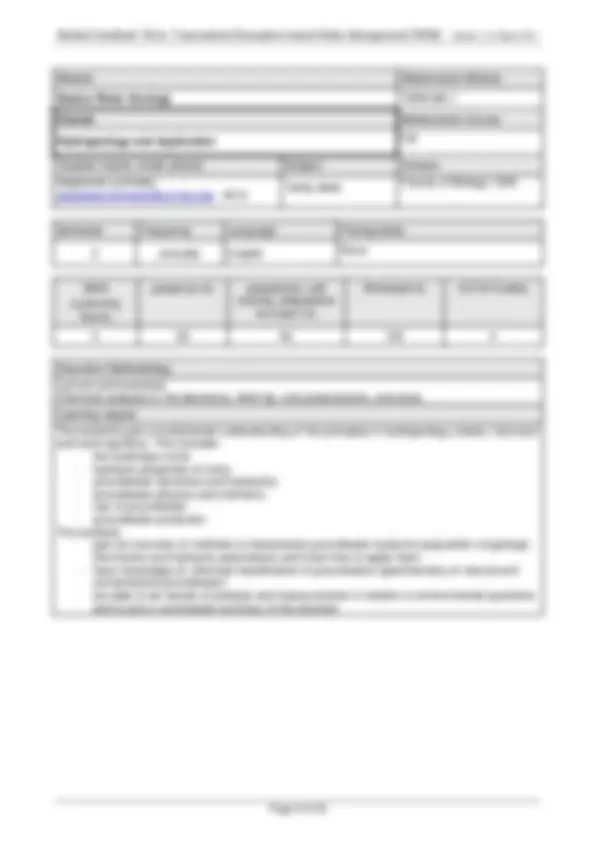
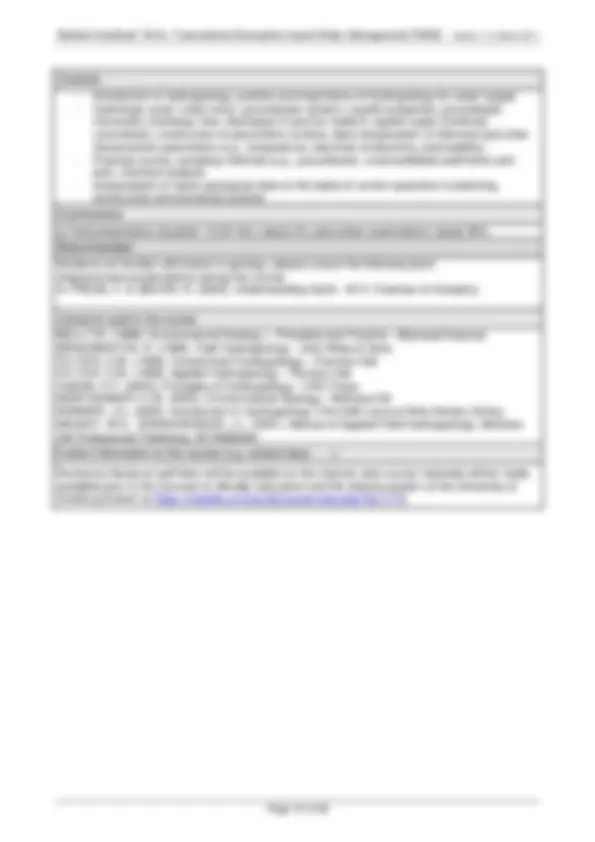
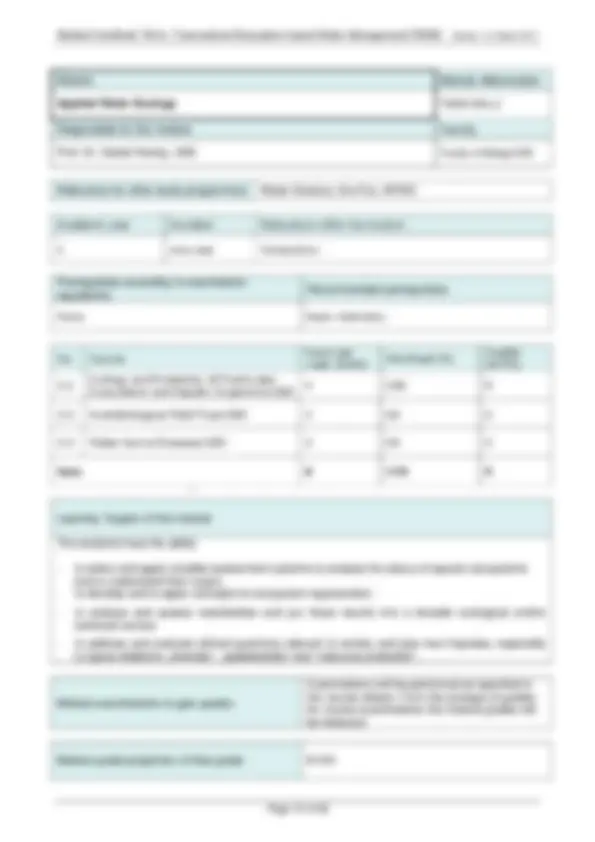
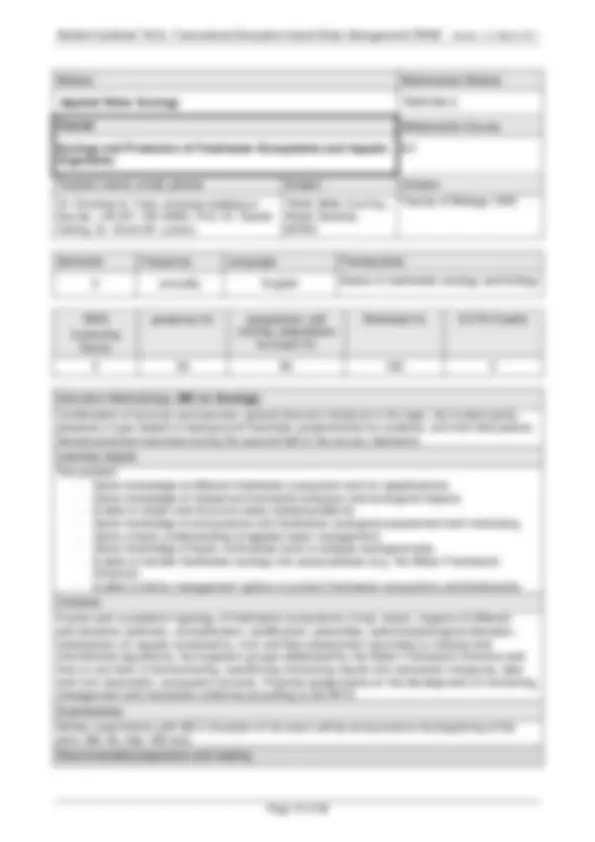
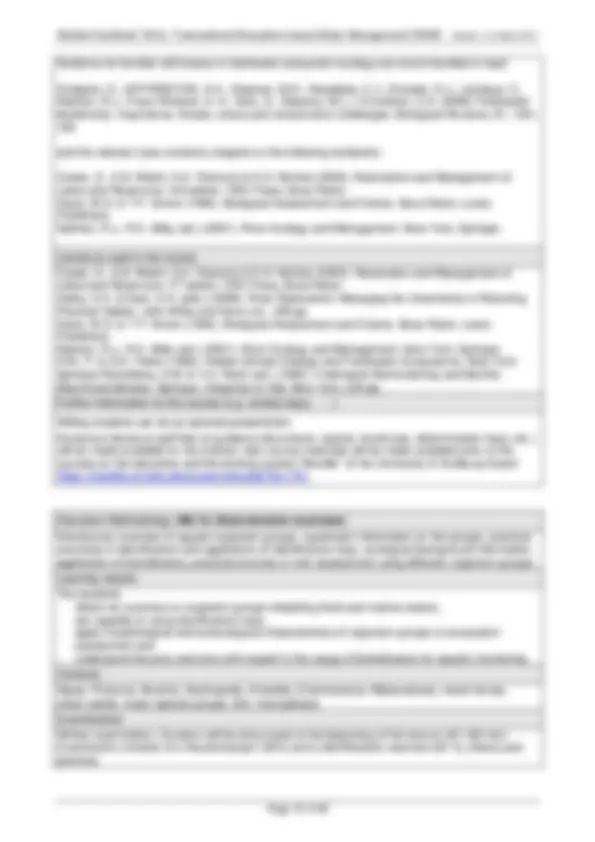
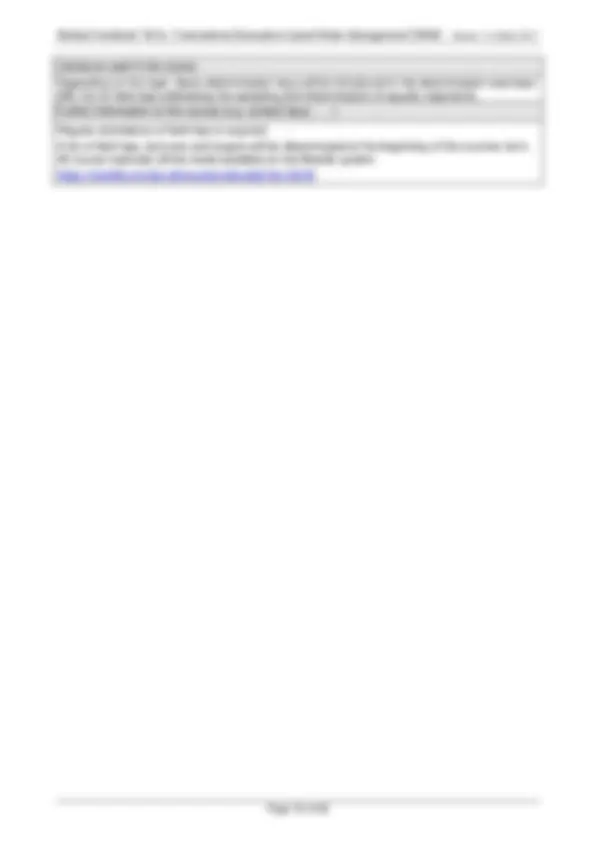
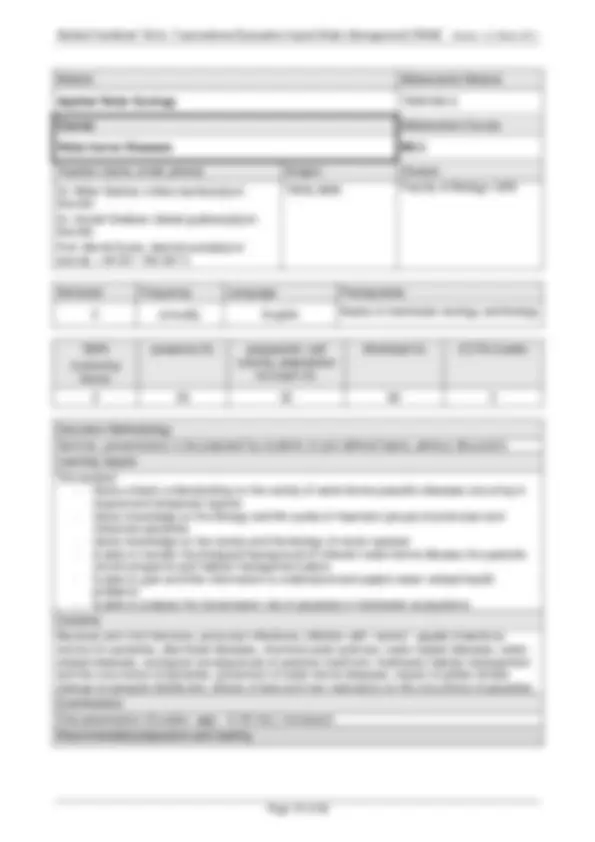
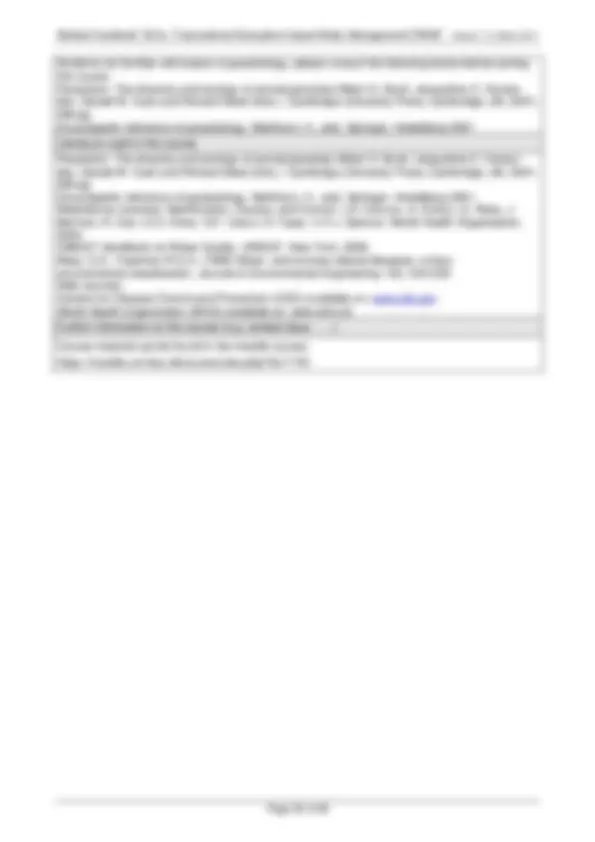
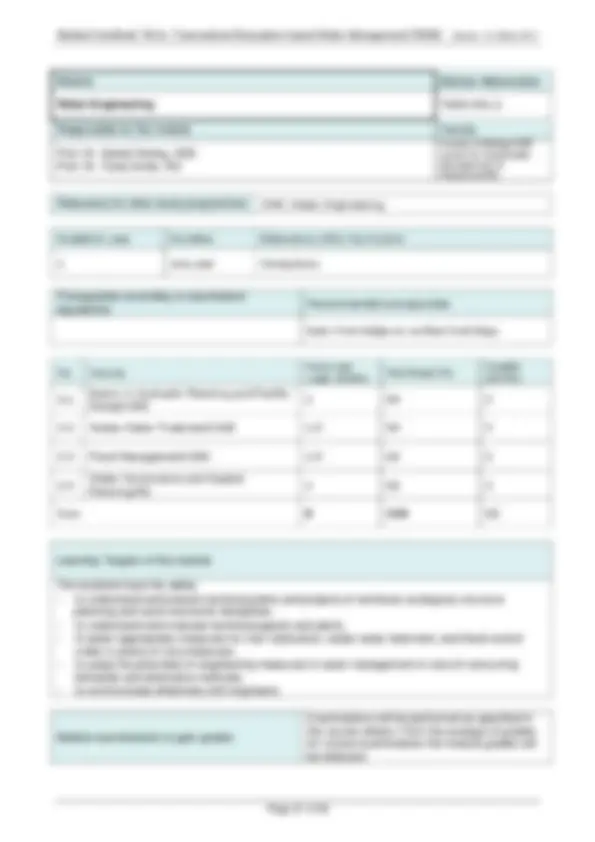

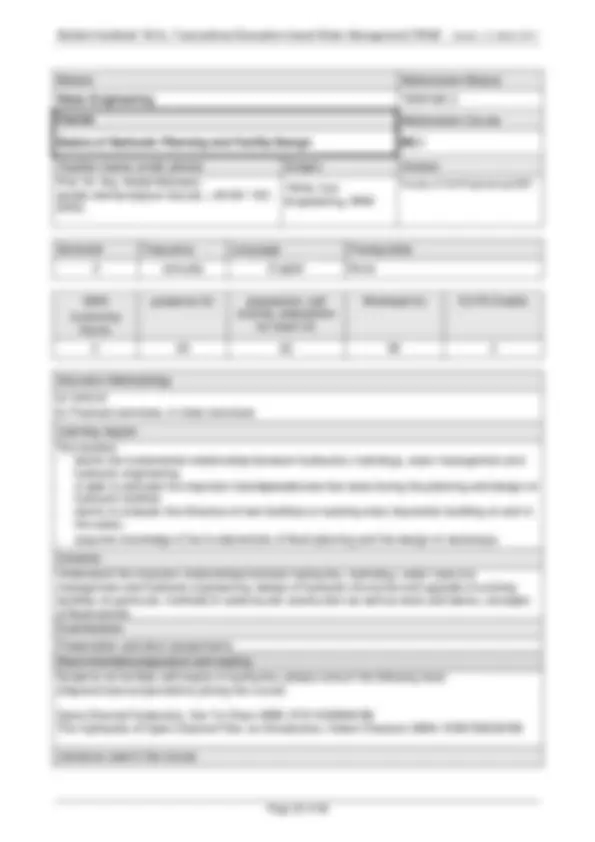
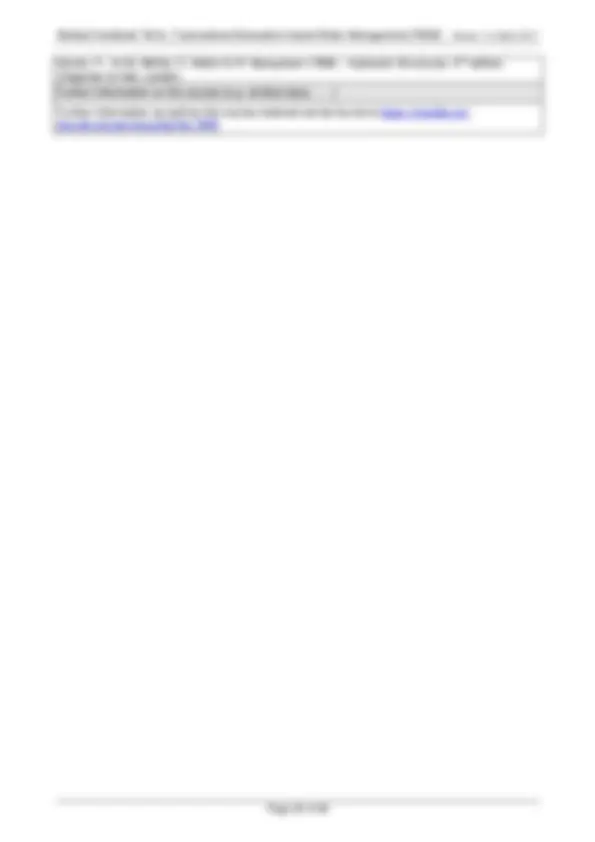
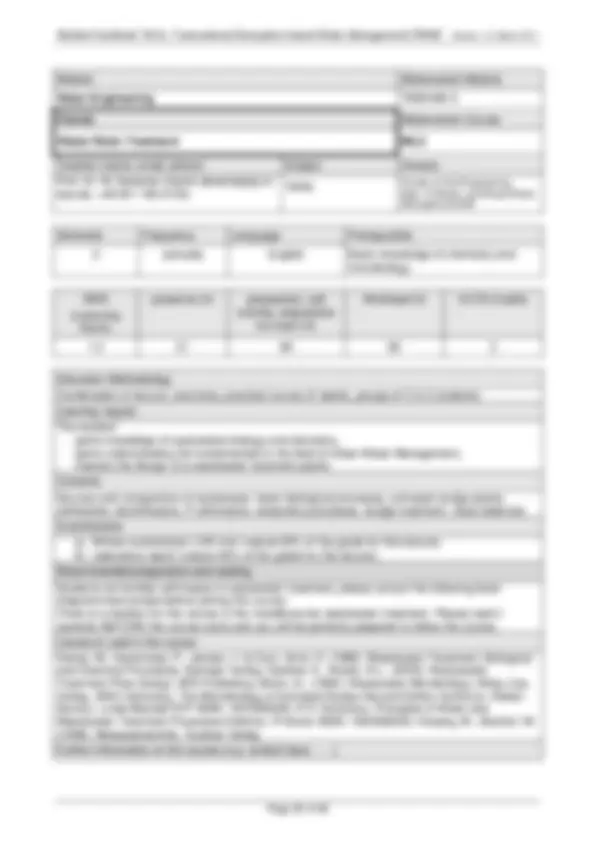

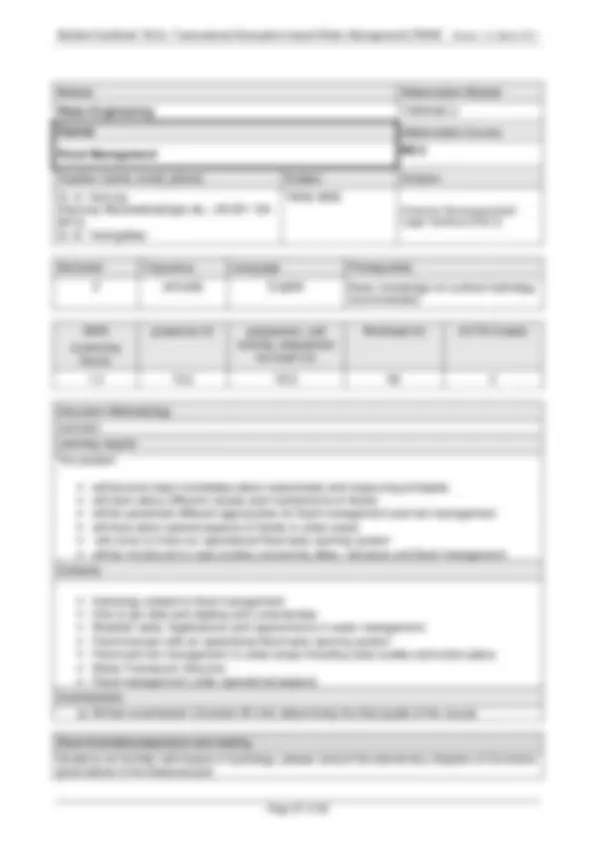
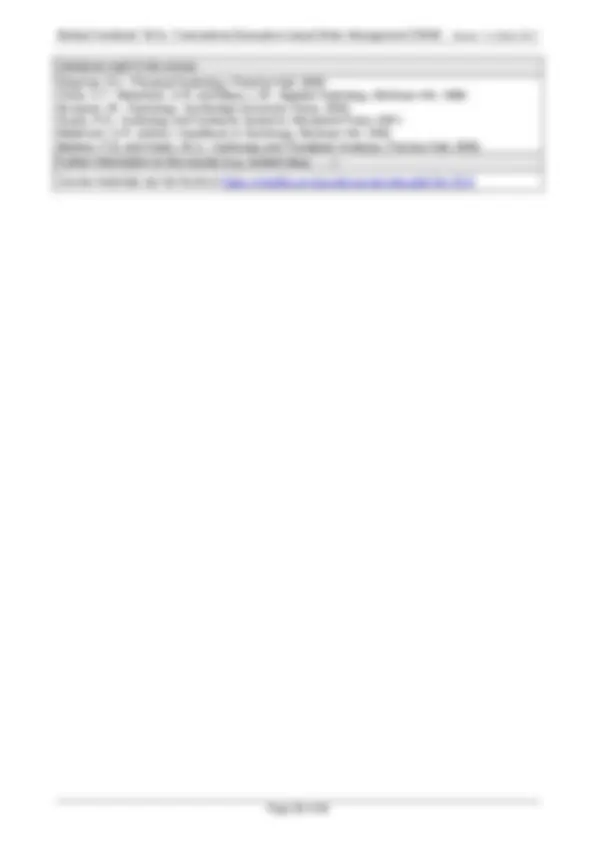
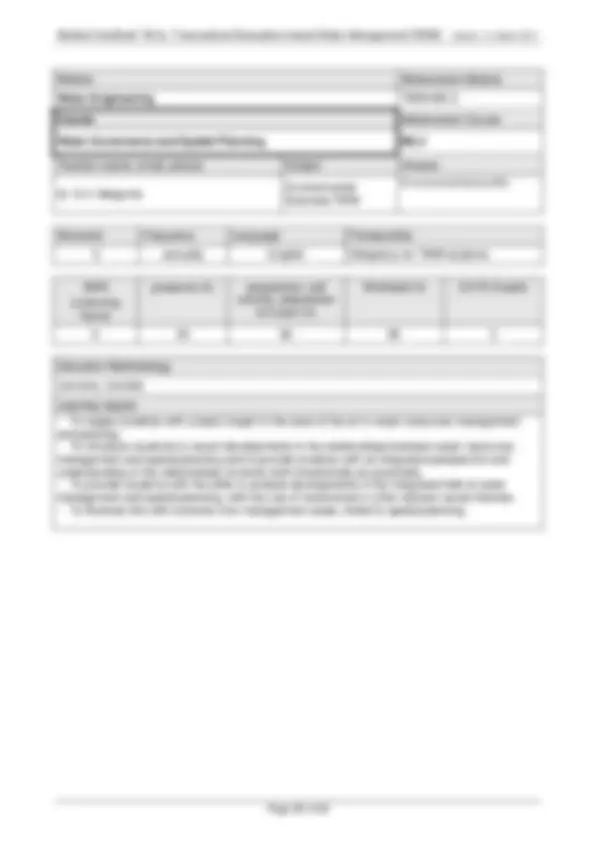
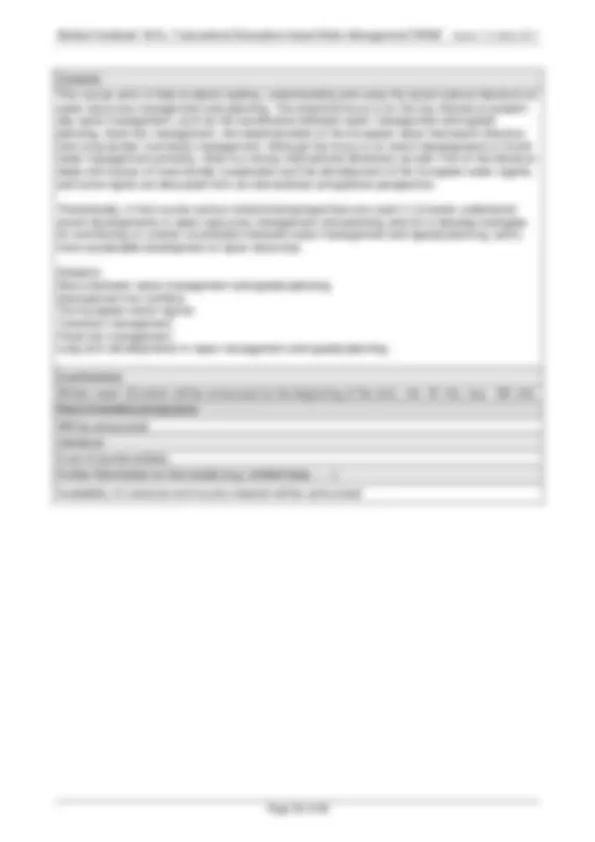
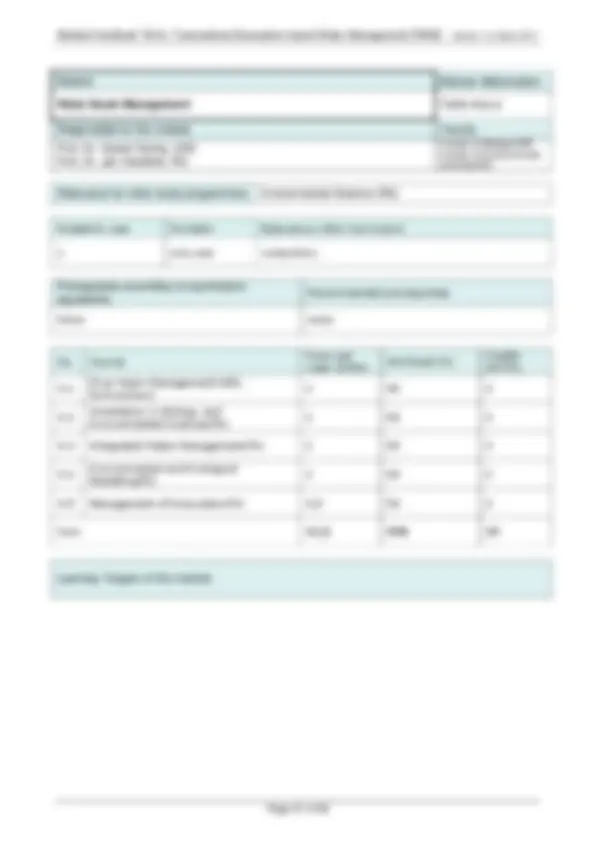
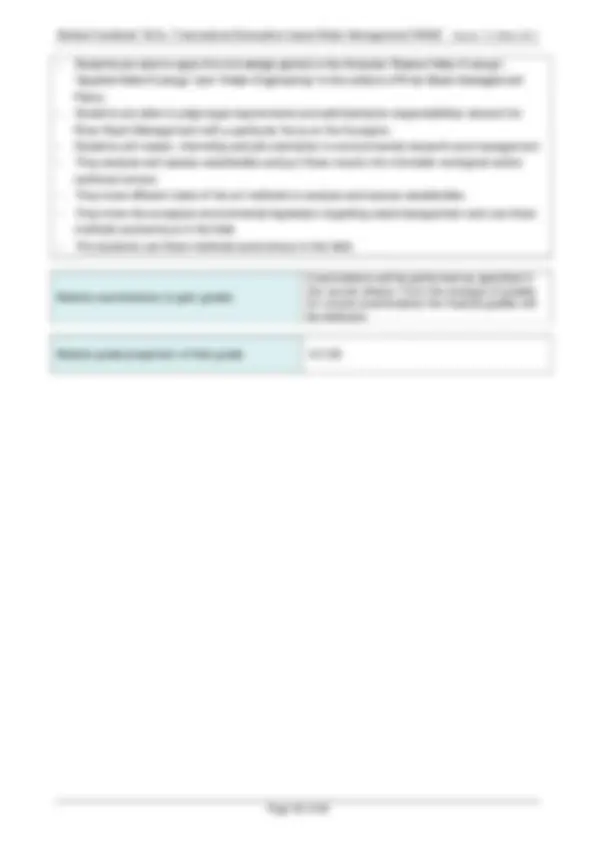
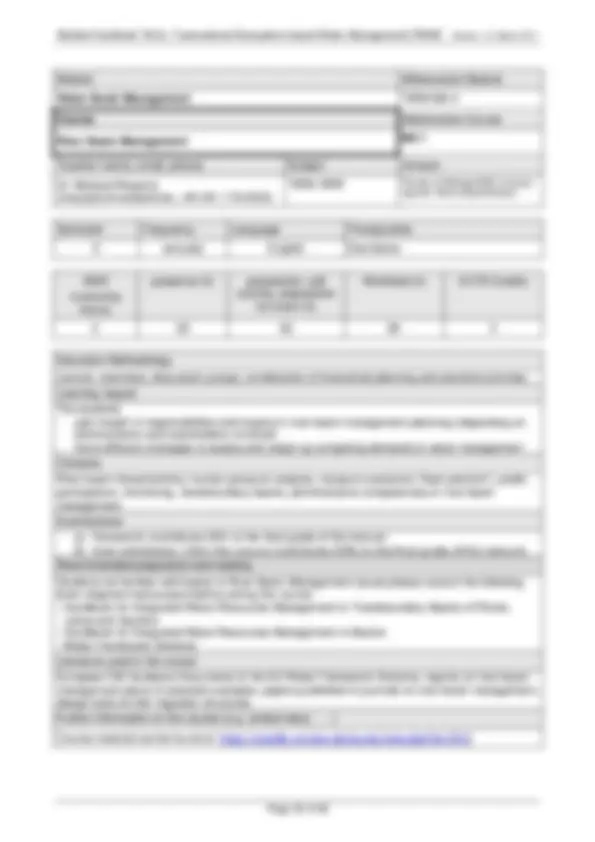
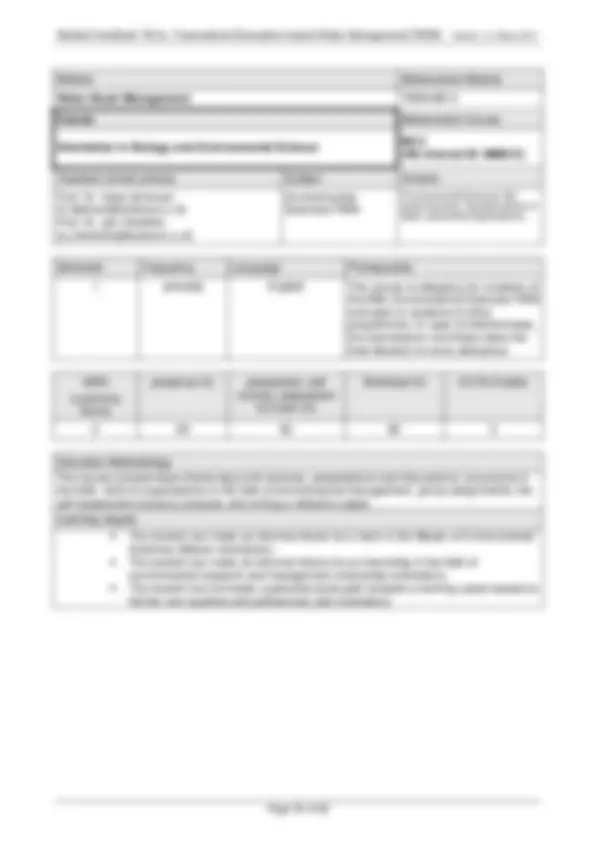
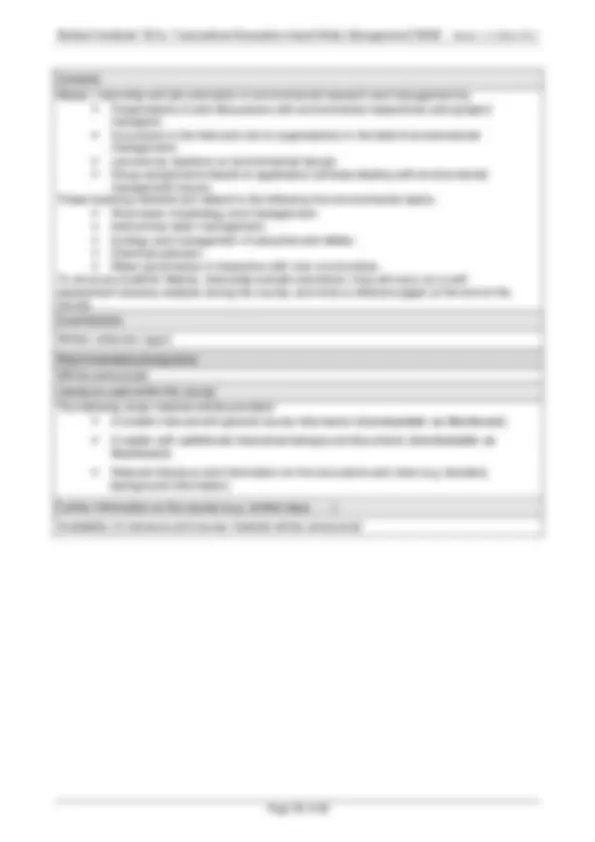
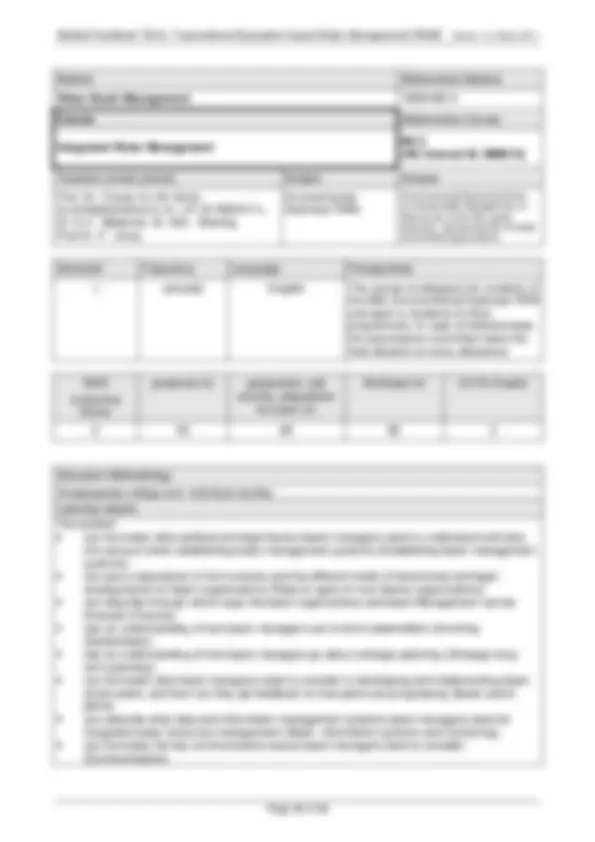
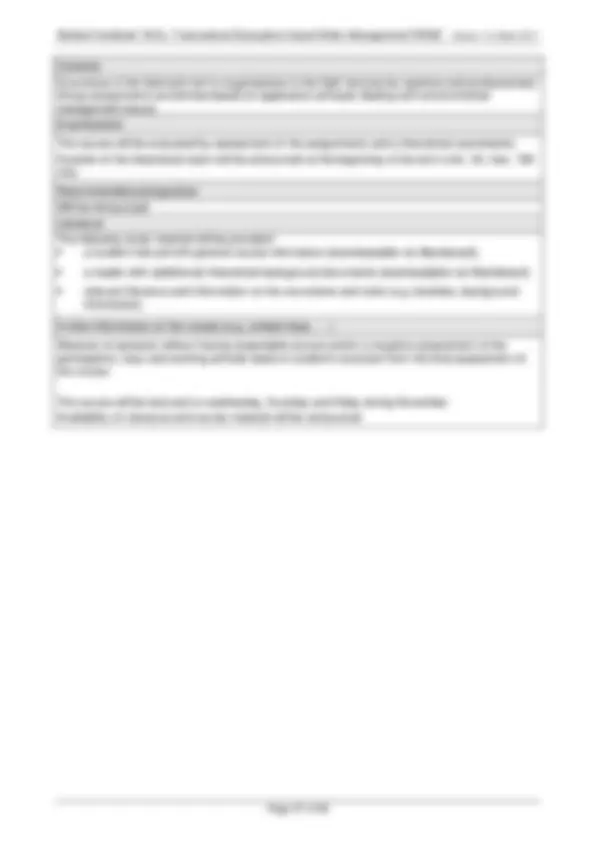
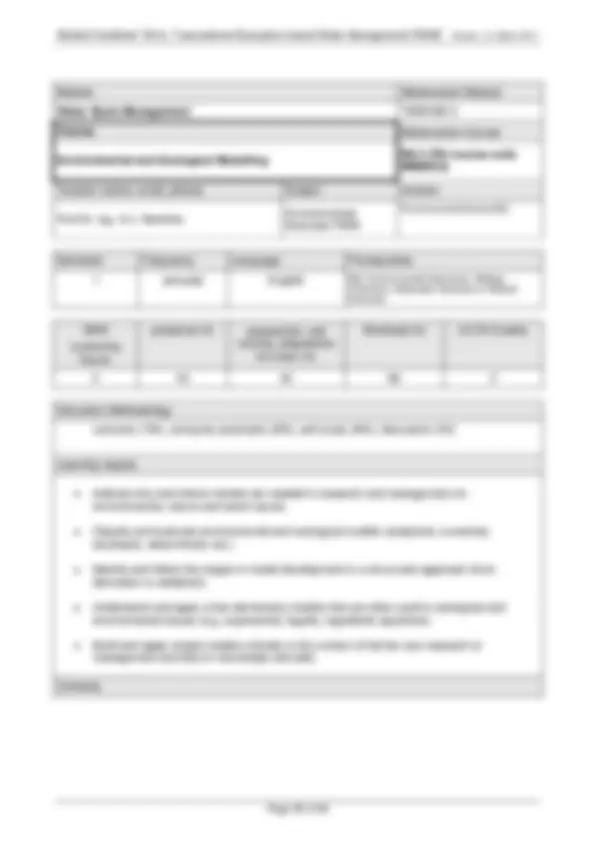
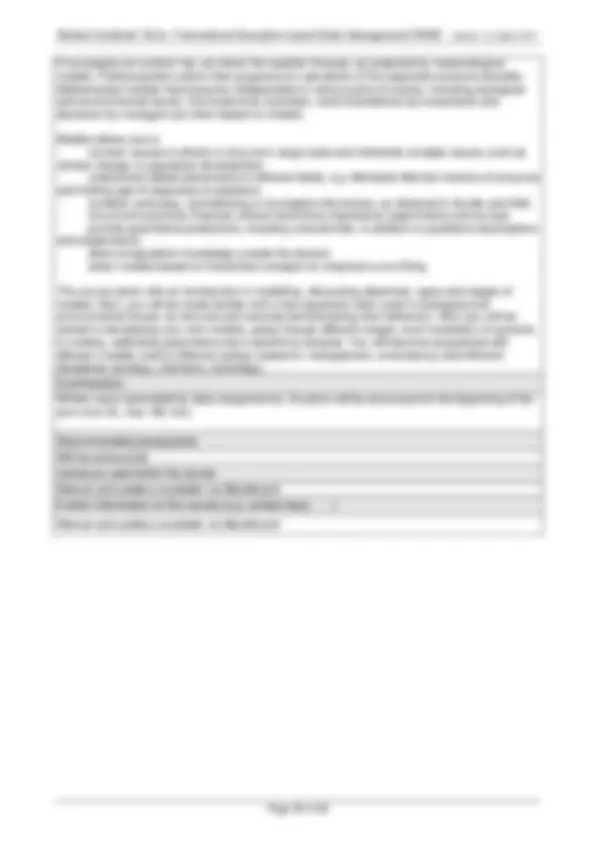
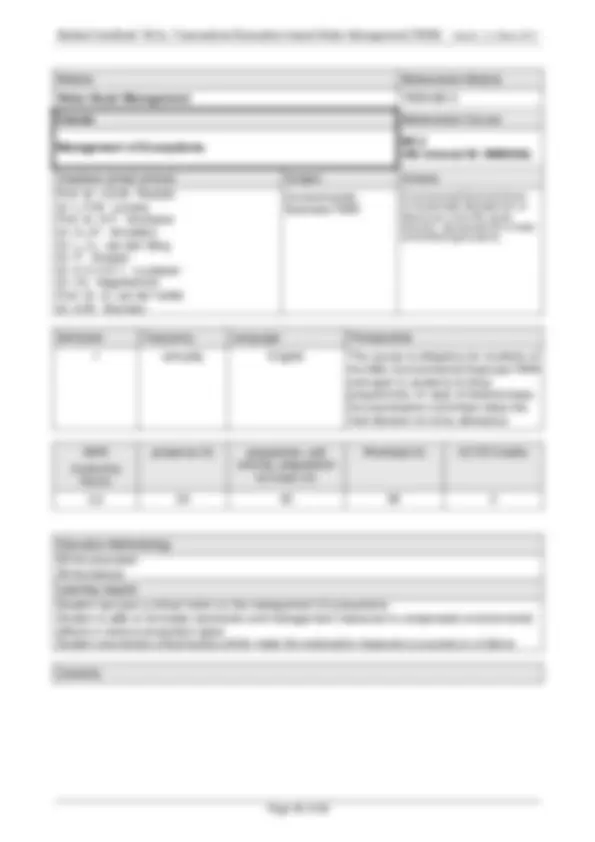
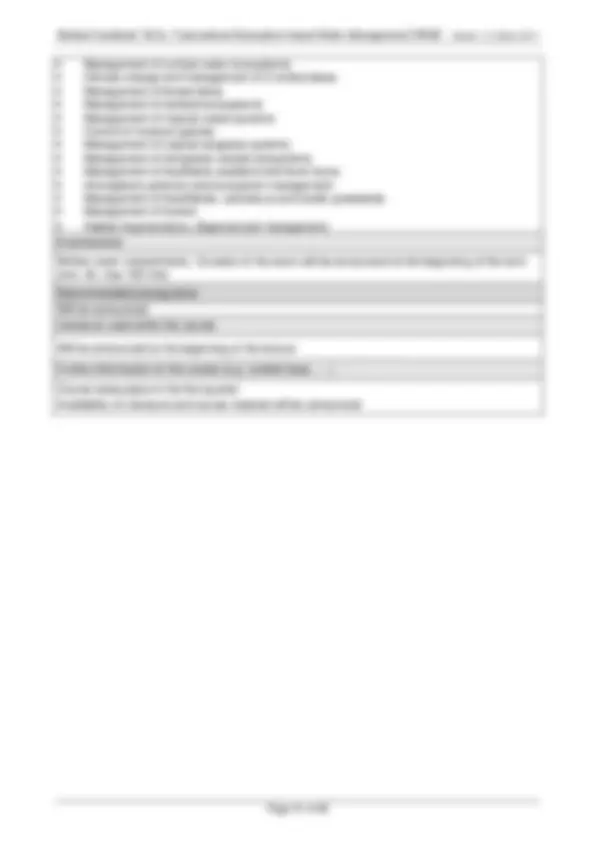
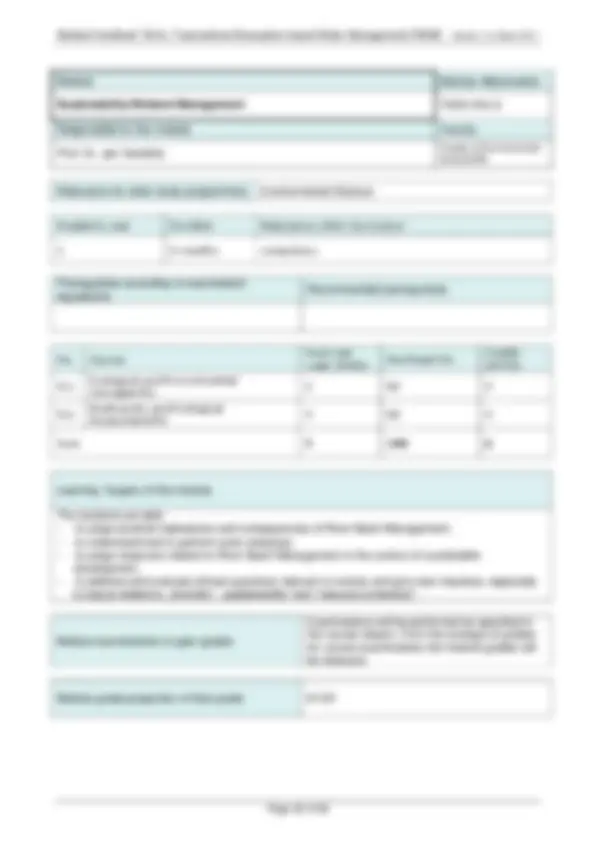
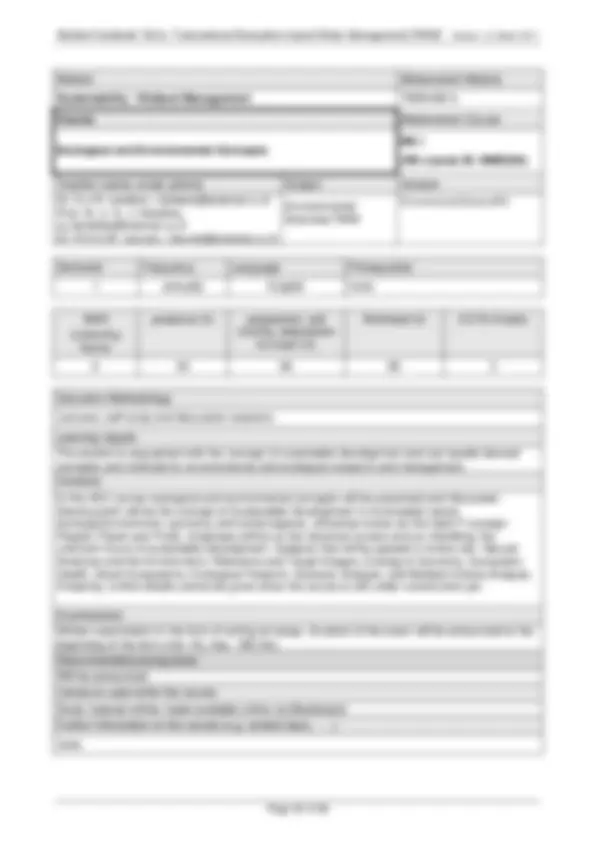
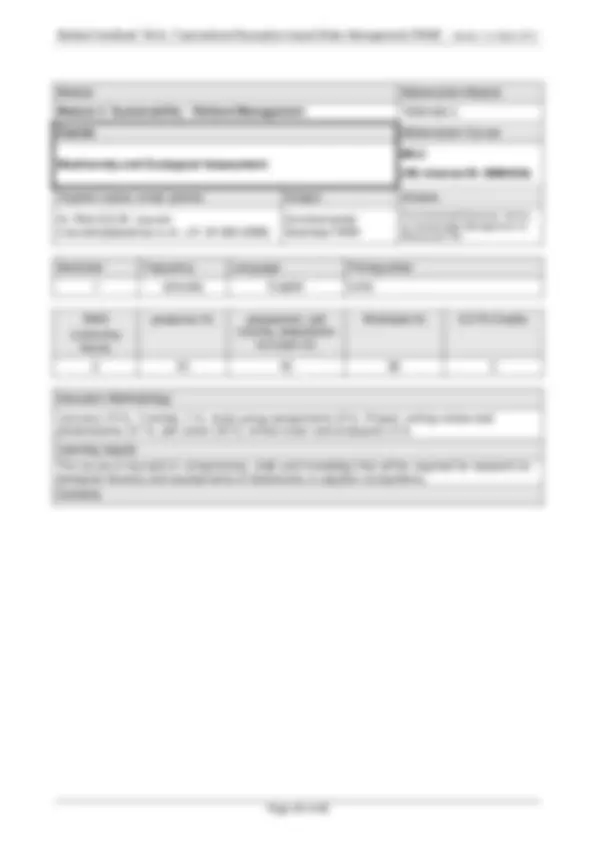
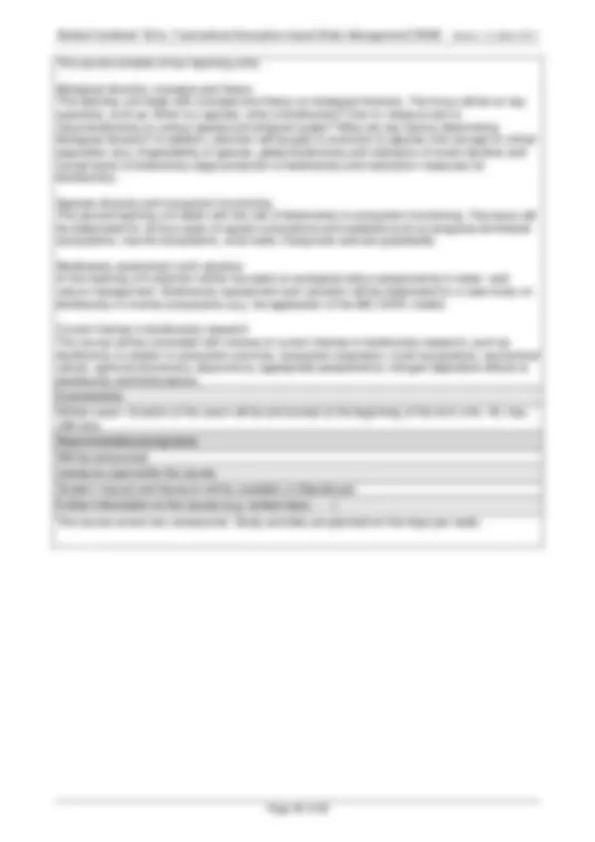
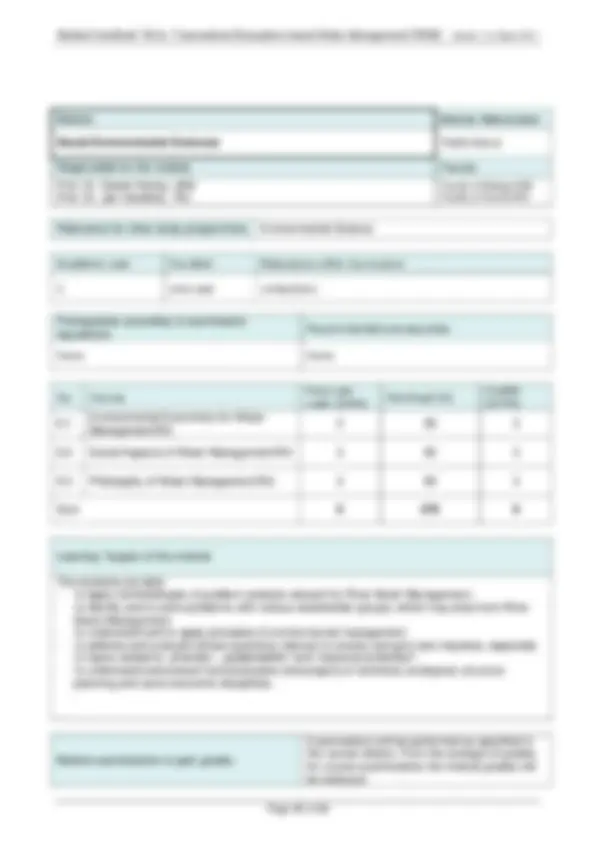

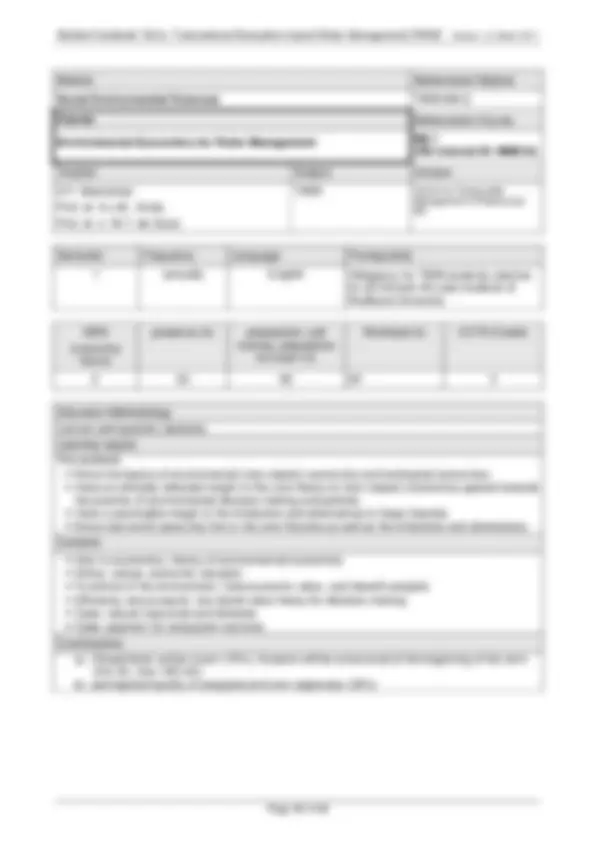
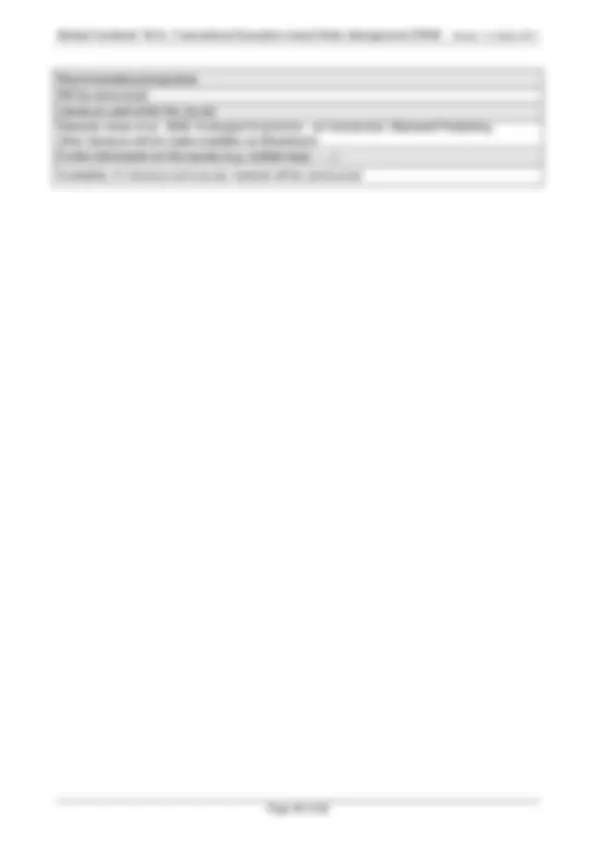
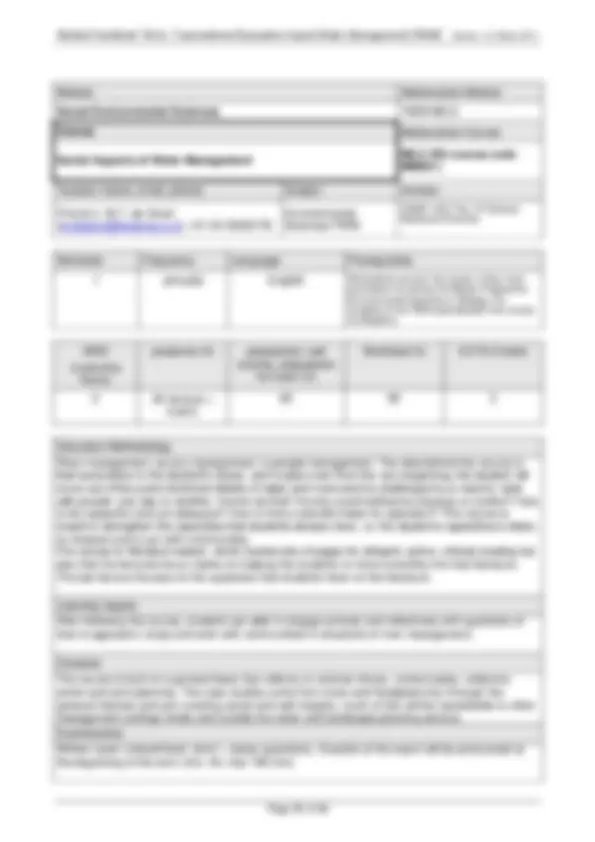
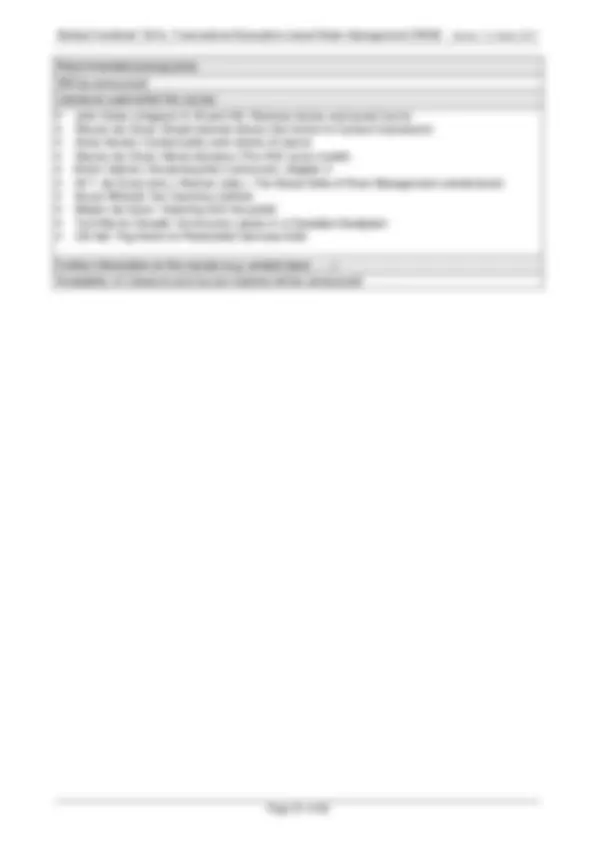
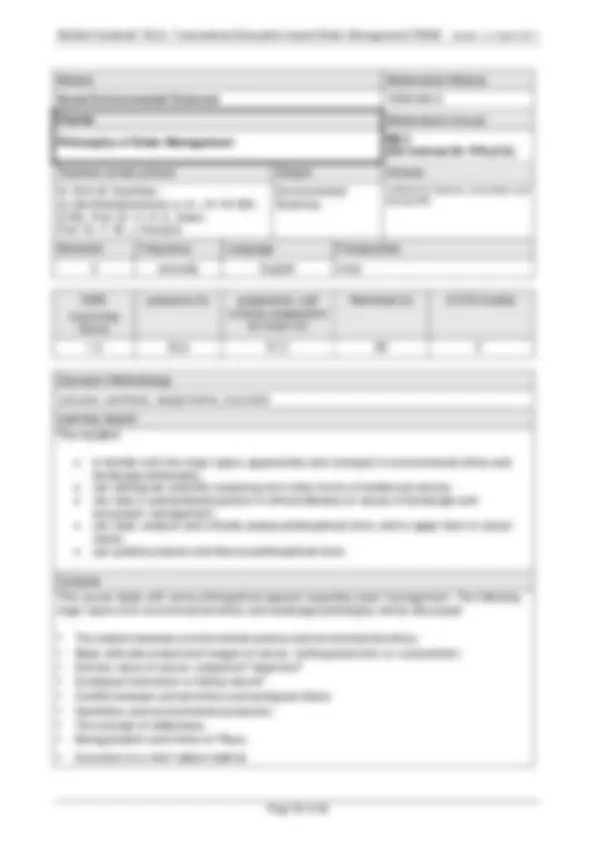
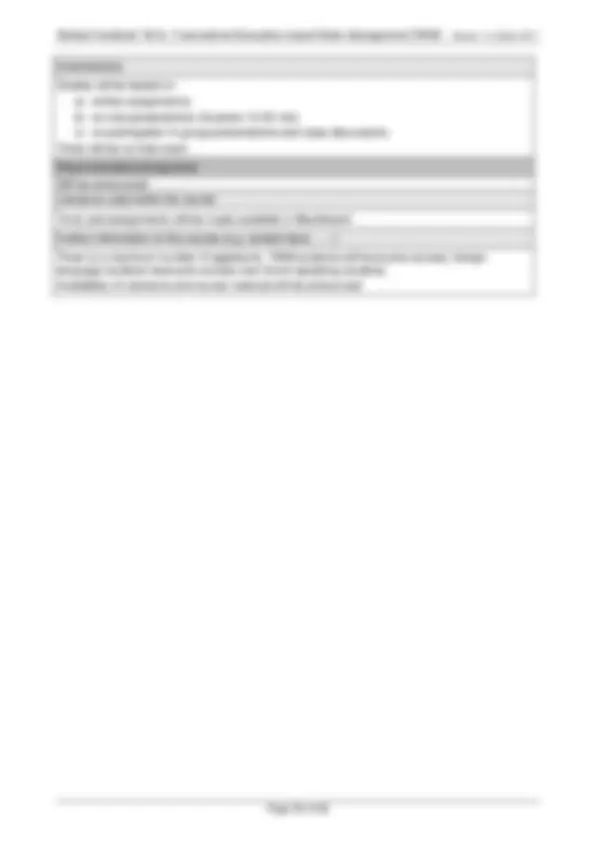
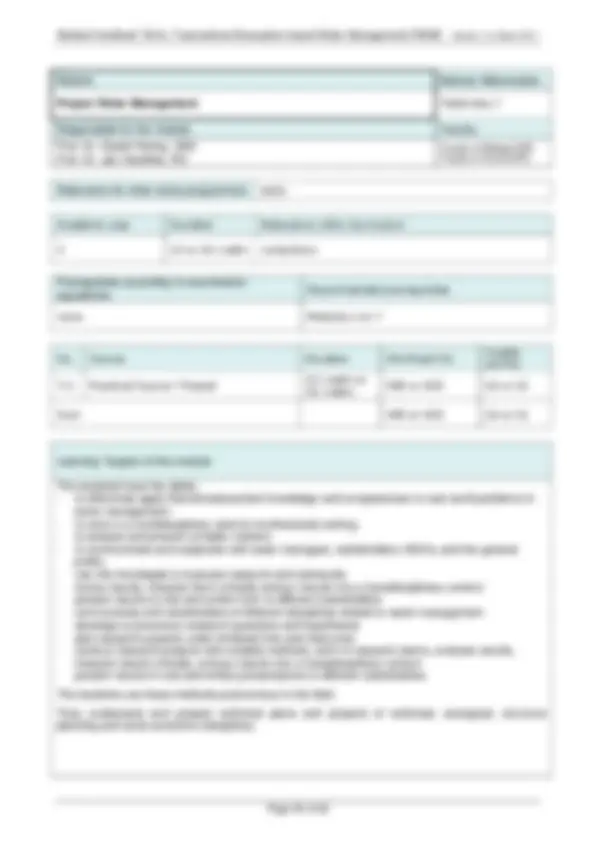
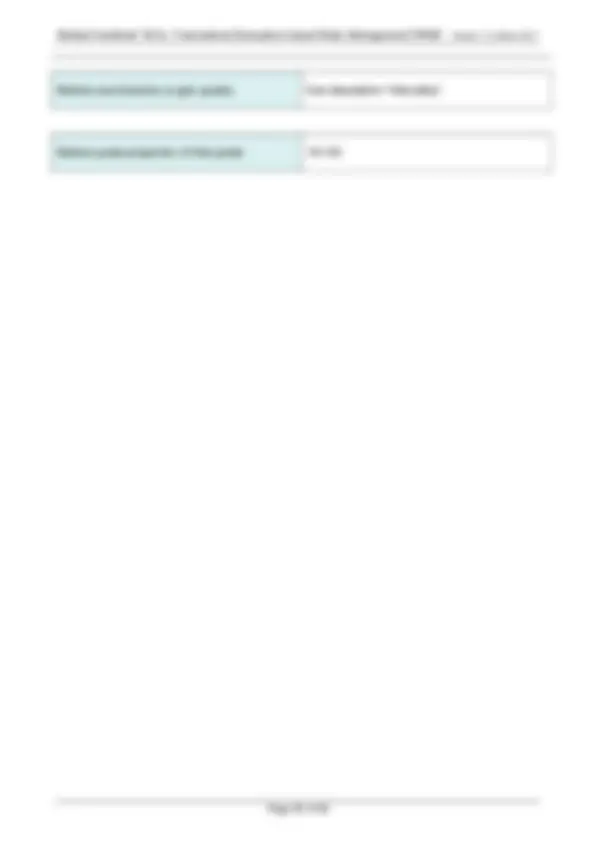
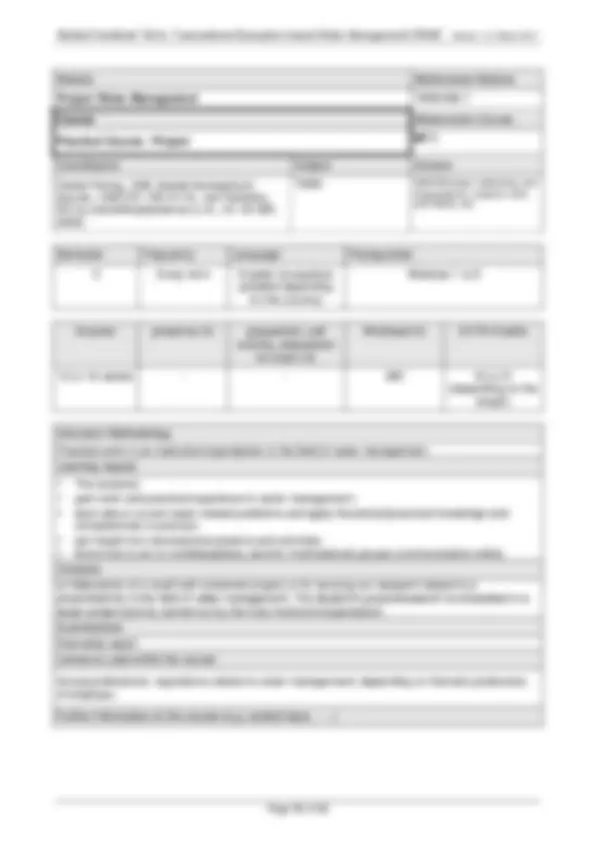
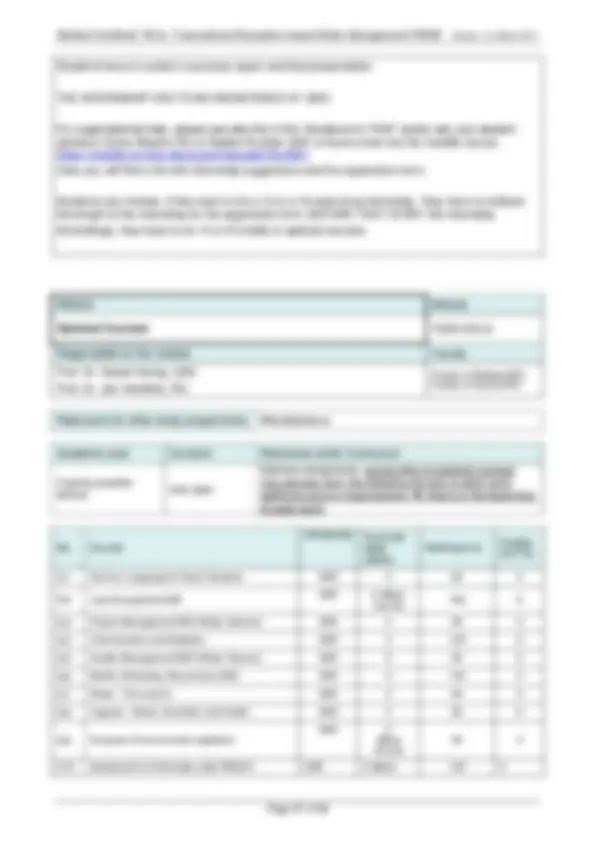
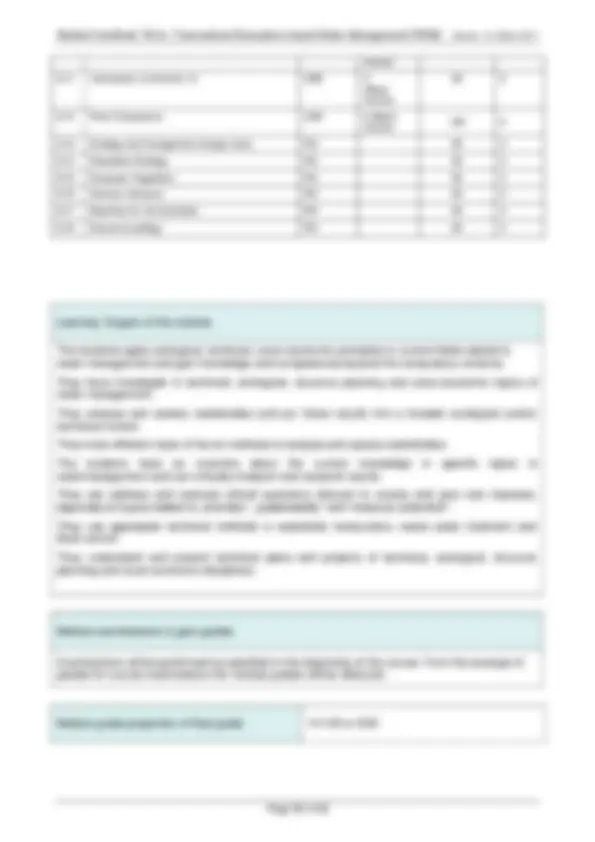
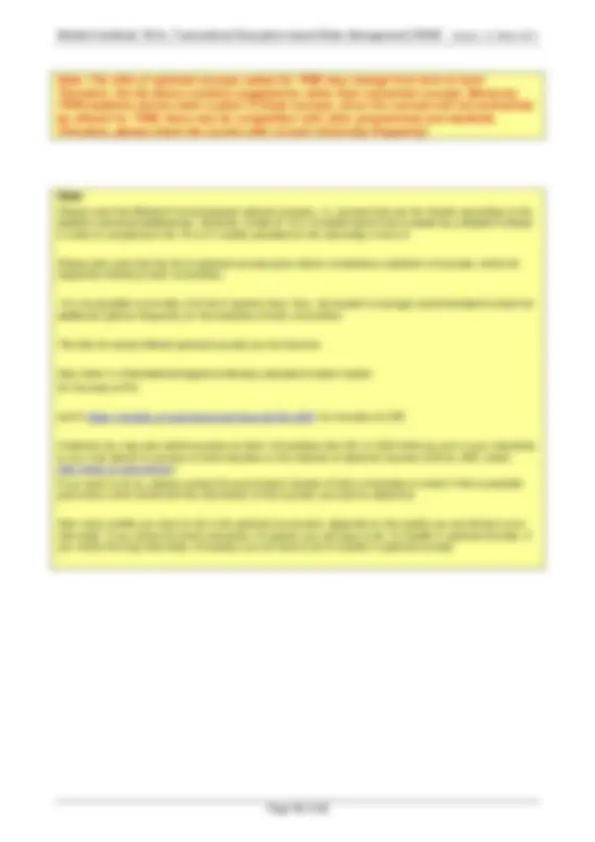
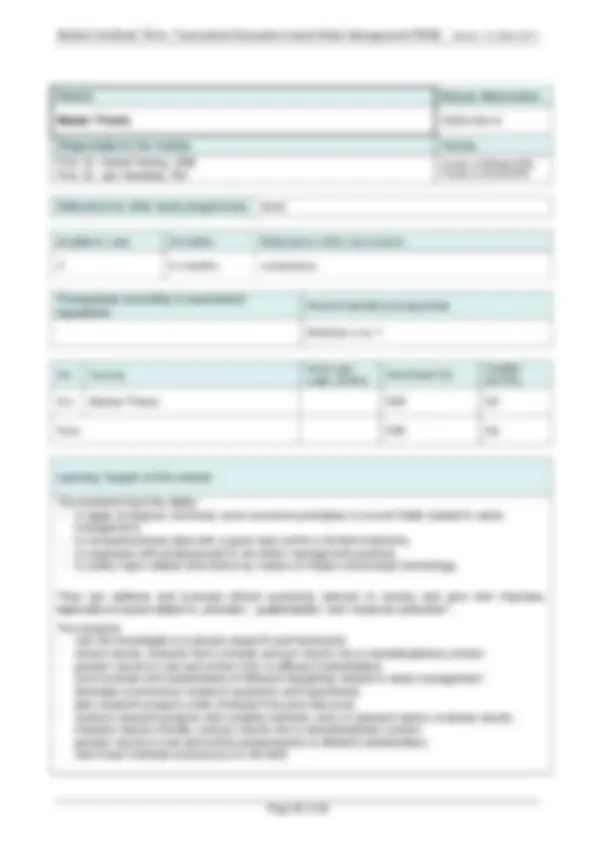
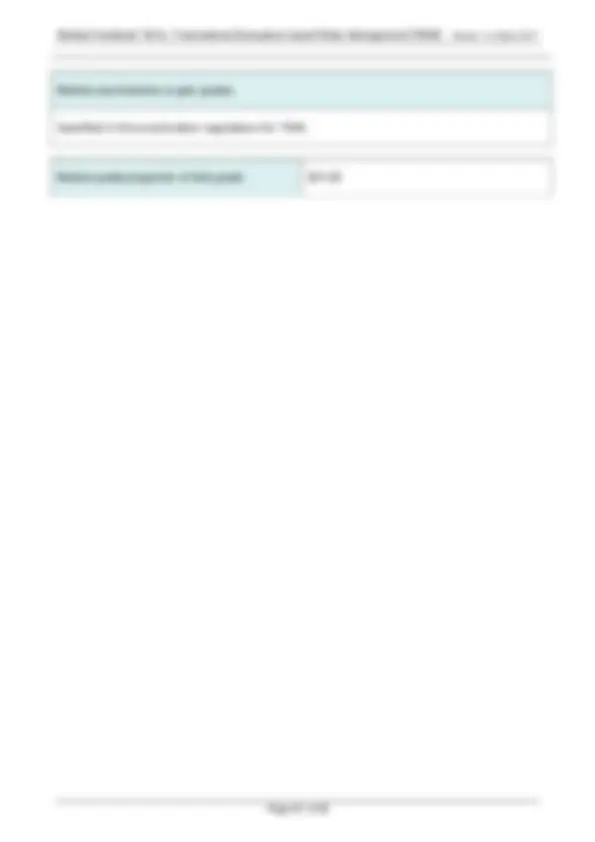
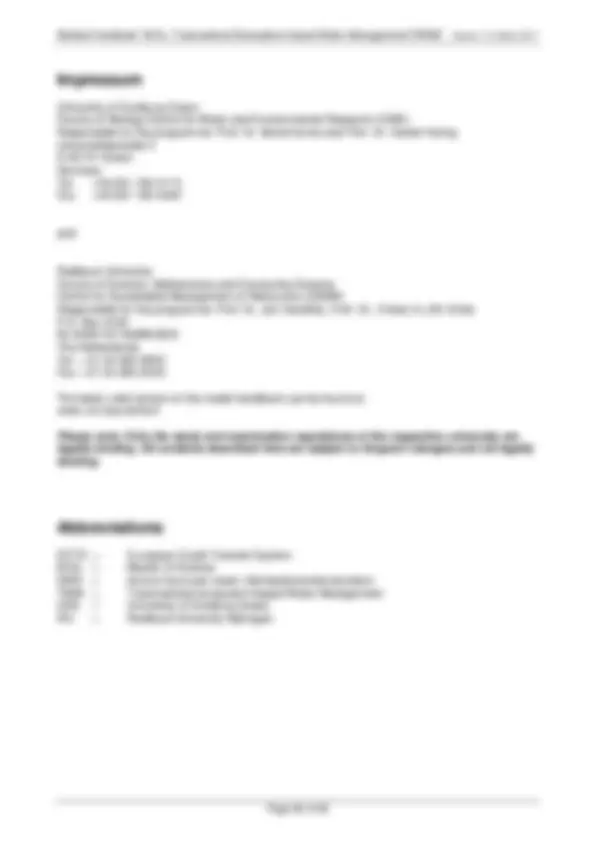


Study with the several resources on Docsity

Earn points by helping other students or get them with a premium plan


Prepare for your exams
Study with the several resources on Docsity

Earn points to download
Earn points by helping other students or get them with a premium plan
Community
Ask the community for help and clear up your study doubts
Discover the best universities in your country according to Docsity users
Free resources
Download our free guides on studying techniques, anxiety management strategies, and thesis advice from Docsity tutors
The course structure and details of the M.Sc. Transnational Ecosystem-based Water Management (TWM) program, offered by the University of Duisburg-Essen (UDE) and Ruhr-University (RU). The program consists of 12 compulsory modules and 1 elective-compulsory module, covering various aspects of water management, ecology, engineering, and social environmental sciences. Each module has specific learning objectives, content, and assessment methods.
Typology: Lecture notes
1 / 62

This page cannot be seen from the preview
Don't miss anything!























































Module 7: Project Water Management (compulsory) Name of Course Place Semester Credits
M7.1 Practical Course / Project
RU/UDE External 3 16 or 2 1 Sum 16 or 2 1 Module 8: Optional Courses (elective-compulsory) Name of Course Place Semester Credits
M8.xx
Varying Courses on Ecology, Languages, Economics, Microbiology, Modelling, Sustainable Development, Socio- economics, Water Treatment, Statistics (specified in the module handbook) RU/UDE 3 From this to be selected 14 or 9 Module 9: Master-Thesis (compulsory) Name of Course Place Semester Credits
Master-Thesis
RU/ UDE External 4 30 Sum 30 Total year 2 Semester^ Credits 3 und 4 60
Module Abbreviation Module
Basics Water Ecology TWM-MA- 1
Course (^) Abbreviation Course
Hydroclimatology and Sustainable Water Management 1.
Teacher (name, email, phone) Subject Division
Prof. Wilhelm Kuttler, (wiku[at]uni-due.de, ) TWM, IWM Faculty of Biology/ UDE
Semester Frequency Language
2 annually English
(Lecturing hours)
presence (h) preparation, self tutoring, preparation for exam (h)
Workload (h) ECTS-Credits
Education Methodology
Lectures with seminar character, students will have to solve arithmetic problems concerning the field of hydroclimatology, short presentations on pre-defined topics including a plenary discussion at the end of the lecture about the target of the modul.
Learning targets
The student:
Contents
The climate system, general climatology, global hydrologic cycle The realm of hydroclimatology Measuring hydroclimatic atmospheric and terrestrial components Precipitation, runoff processes and streamflow Hydroclimate spatial and temporal variations Floods and droughts, irrigation of land Sources of irrigation water, geographical distribution of irrigation demand Types and efficiency of irrigation, problems of irrigation
Examinations
Written exam
Recommended preparation and reading
Students not familiar with basics in general natural science, applied mathematics and applied physics, please consult the following book chapters/manuscripts before joining the course: Shelton, M. L. (2009): Hydroclimatology. Cambridge University Press, New York, 440 pp.
Literature used within the course
Further Information on the course will be made available on the moodle course: https://moodle.uni-due.de/course/view.php?id=
Contents
Examinations
a) Oral presentation (duration 15-20 min) values 5% and written examination values 95%
Recommended
Students not familiar with basics in geology, please consult the following book chapters/manuscripts before joining the course: A: PRESS, F. & SIEVER, R. (2003): Understanding Earth.- W.H. Freeman & Company
Literature used in the course
BELL F.G. (1999): Environmental Geology – Principles and Practice.- Blackwell Science BRASSINGTON, R. (1998): Field Hydrogeology.- John Wiley & Sons FETTER, C.W. (1999): Contaminant Hydrogeology.- Prentice Hall FETTER, C.W. (1999): Applied Hydrogeology.- Prentice Hall HUDAK, P.F. (2005): Principles of Hydrogeology.- CRC Press MONTGOMERY C.W. (2003): Environmental Geology.- McGraw-Hill NONNER, J.C. (2002): Introduction to Hydrogeology (The Delft Lecture Note Series) (Enke). WEIGHT, W.D., SONDEREGGER, J.L. (2001): Manual of Applied Field Hydrogeology, McGraw- Hill Professional Publishing. 007069639X.
Further Information on the course (e.g. contact days, …..)
Numerous literature (pdf files) will be available on the internet; also course materials will be made available prior to the courses on Moodle (education and file-sharing system of the University of Duisburg-Essen) at https://moodle.uni-due.de/course/view.php?id=
Module Abbreviation Module
Basics Water Ecology (^) TWM-MA-
Course Abbreviation Course
Water Quality Modelling 1. 3
Teacher (name, email, phone) Subject Division
Dr.-Ing. Dipl. Ekkehard Christoffels
ekkehard.christoffels@erftverband.de
Civil Engineering TWM
Erftverband
Semester Frequency Language Prerequisites
2 annually English none
(Lecturing hours)
presence (h) preparation, self tutoring, preparation for exam (h)
Workload (h) ECTS-Credits
Education Methodology
a) Lecture b) Practical exercises, in-class exercises
Learning targets
The students
Contents
Introduction to Water Quality Modelling Basics about the DWA Water Quality Model DWA Water Quality Model – Modules of the Model Several Hands-on Exercises: Water Quality Modelling
Examinations
Written examination (Duration will be announced at the beginning of the lecture. It is between 45 and 180 min)
Recommended prerequisites
Module Module Abbreviation
Applied Water Ecology (^) TWM-MA- 2
Responsible for the module Faculty
Prof. Dr. Daniel Hering, UDE Faculty of Biology/UDE
Relevance for other study programmes Water Science, EnviTox, MTW
Academic year Duration Relevance within Curriculum
1 one year Compulsory
Prerequisites according to examination regulations Recommended prerequisites
None Basic chemistry
No. Course hours per week (SWS) Workload (h) Credits (ECTS)
2.1 Ecology and Protection of Freshw Ecosystems and Aquatic Organismsater/UDE 4 150 5
2.2 Hydrobiological Field Trips/UDE 2 60 2
Sum 8 270 9
1
Learning Targets of this module
The students have the ability
Module examinations to gain grades
Examinations will be performed as specified in the course sheets. From the average of grades for course examinations the module grades will be deduced.
Module grade proportion of final grade 9/
Module Abbreviation Module
Applied Water Ecology TWM-MA- 2
Course (^) Abbreviation Course
Ecology and Protection of Freshwater Ecosystems and Aquatic Organisms
Teacher (name, email, phone) Subject Division
Dr. Christian K. Feld, (christian.feld[at]uni- due.de, +49 201 183 - 4390), Prof. Dr. Daniel Hering, Dr. Armin W. Lorenz
TWM, IWM, EnviTox, Water Science, MTW
Faculty of Biology/ UDE
Semester Frequency Language Prerequisites
2 annually English Basics in freshwater ecology and biology
(Lecturing hours)
presence (h) preparation, self tutoring, preparation for exam (h)
Workload (h) ECTS-Credits
Education Methodology ( M2.1a: Ecology )
Combination of lectures and exercise: general lectures introduce to the topic, the student partly prepares a topic based on background materials; presentations by students, common discussions. Several practical exercises during the second half of the course, teamwork.
Learning targets
The student:
Contents
A-priori and a-posteriori typology of freshwater ecosystems (rivers, lakes), impacts of different perturbations (pollution, eutrophication, acidification, pesticides, hydromorphological alteration, waterpower) on aquatic ecosystems, river and lake assessment according to national and international regulations, the organism groups addressed by the Water Framework Directive and how to use them in biomonitoring, transferring monitoring results into restoration measures, lake and river restoration, ecosystem services. Practical assignments on the development of monitoring, management and restoration schemes according to the WFD.
Examinations
Written examination with M2.2 (Duration of the exam will be announced at the beginning of the term. Min 45, max 180 min)
Recommended preparation and reading
Recommended preparation and reading
Students not familiar with aquatic organisms are recommended to read the introductory chapters of the following textbooks before joining the course:
Lockwood, A. and Murray, P. (Hrsg.) 1976. Effects of pollutants on aquatic organisms: lecture pres. at a seminar held Apr. 11, 1975, at Liverpool Univ. Society for Experimental Biology 2, Cambridge, University Press, 193 pp. Nilsson, A.N. (Hrsg.) 1996: Aquatic insects of North Europe : a taxonomic handbook. Stenstrup, Apollo books.
Literature used in the course
Identification keys and background information is compiled for each lecture. An overview of useful identification keys is subject to frequent updates and will be provided during the course. Downloadable versions will be placed on Moodle.
Further Information on the course (e.g. contact days, …..)
Regular attendance is obligatory
Module Abbreviation Module
Applied Water Ecology (^) TWM-MA-
Course (^) Abbreviation Course
Hydrobiological Field Trips M2.
Teacher (name, email, phone) Subject Division
Various lecturers (christian.feld[at]uni- due.de; +49 201 183-4390)
TWM Faculty of Biology and Geography/ UDE
Semester Frequency Language Prerequisites
2 annually English
(Lecturing hours)
presence (h) (^) preparation, self tutoring, preparation for exam (h)
Workload (h) ECTS-Credits
Education Methodology
Field trips; open discussion with water managers, practical field exercises, demonstration of facilities and techniques in water management.
Learning targets
The students
Contents
One ecosystem type or restoration measure/field trip. Examples:
Examinations
Individual protocols of field trips (5–10 pages)
Recommended preparation and reading
The field trips will refer to specific topics of previous lectures. No further preparation will be required
Module Abbreviation Module
Applied Water Ecology TWM-MA-
Course Abbreviation Course
Water-borne Diseases M2. 3
Teacher (name, email, phone) Subject Division
Dr. Milen Nachev (milen.nachev[at]uni- due.de)
Dr. Daniel Grabner (daniel.grabner[at]uni- due.de)
Prof. Bernd Sures, (bernd.sures[at]uni- due.de, +49 201 183-2617)
TWM, IWM Faculty of Biology/ UDE
Semester Frequency Language Prerequisites
2 annually English Basics in freshwater ecology and biology
(Lecturing hours)
presence (h) preparation, self tutoring, preparation for exam (h)
Workload (h) ECTS-Credits
Education Methodology
Seminar, presentations to be prepared by students on pre-defined topics, plenary discussion.
Learning targets
The student:
Contents
Bacterial and viral infections, protozoan infections, infection with “worms”, aquatic insects as vectors for parasites, diarrhoeal diseases, chemical water pollution, water-based diseases, water- related diseases, ecological consequences of parasite treatment, freshwater habitat management and the occurrence of parasites, prevention of water-borne diseases, impact of global climate change on parasite distribution, effects of lake and river restoration on the occurrence of parasites
Examinations
Oral presentation (Duration: appr. 15-20 min), homework
Recommended preparation and reading
Students not familiar with basics in parasitology, please consult the following books before joining the course: Parasitism. The diversity and ecology of animal parasites Albert O. Bush, Jacqueline C. Fernan- dez, Gerald W. Esch and Richard Seed (Eds.). Cambridge University Press, Cambridge, UK, 2001; 566 pp. Encyclopedic reference of parasitology. Mehlhorn, H., (ed), Springer, Heidelberg 2001
Literature used in the course
Parasitism. The diversity and ecology of animal parasites Albert O. Bush, Jacqueline C. Fernan- dez, Gerald W. Esch and Richard Seed (Eds.). Cambridge University Press, Cambridge, UK, 2001; 566 pp. Encyclopedic reference of parasitology. Mehlhorn, H., (ed), Springer, Heidelberg 2001 Waterborne zoonosis: Identification, Causes, and Control. J.A. Cotruvo, A. Dufour, G. Rees, J. Bartram, R. Carr, D.O. Cliver, G.F. Craun, R. Fayer, V.P.J. Gannon. World Health Organisation,
UNICEF Handbook on Water Quality. UNICEF, New York, 2008. Mara, D.D., Feachem R.G.A. (1999) Water- and excreta-related diseases: unitary environmental classification. Journal of Environmental Engineering 125, 334 - 339. Web sources: Centers for Disease Control and Prevention (CDC) available on: www.cdc.gov World Health Organization (WHO) available on: www.who.int
Further Information on the course (e.g. contact days, …..)
Course material can be found in the moodle course:
https://moodle.uni-due.de/course/view.php?id=